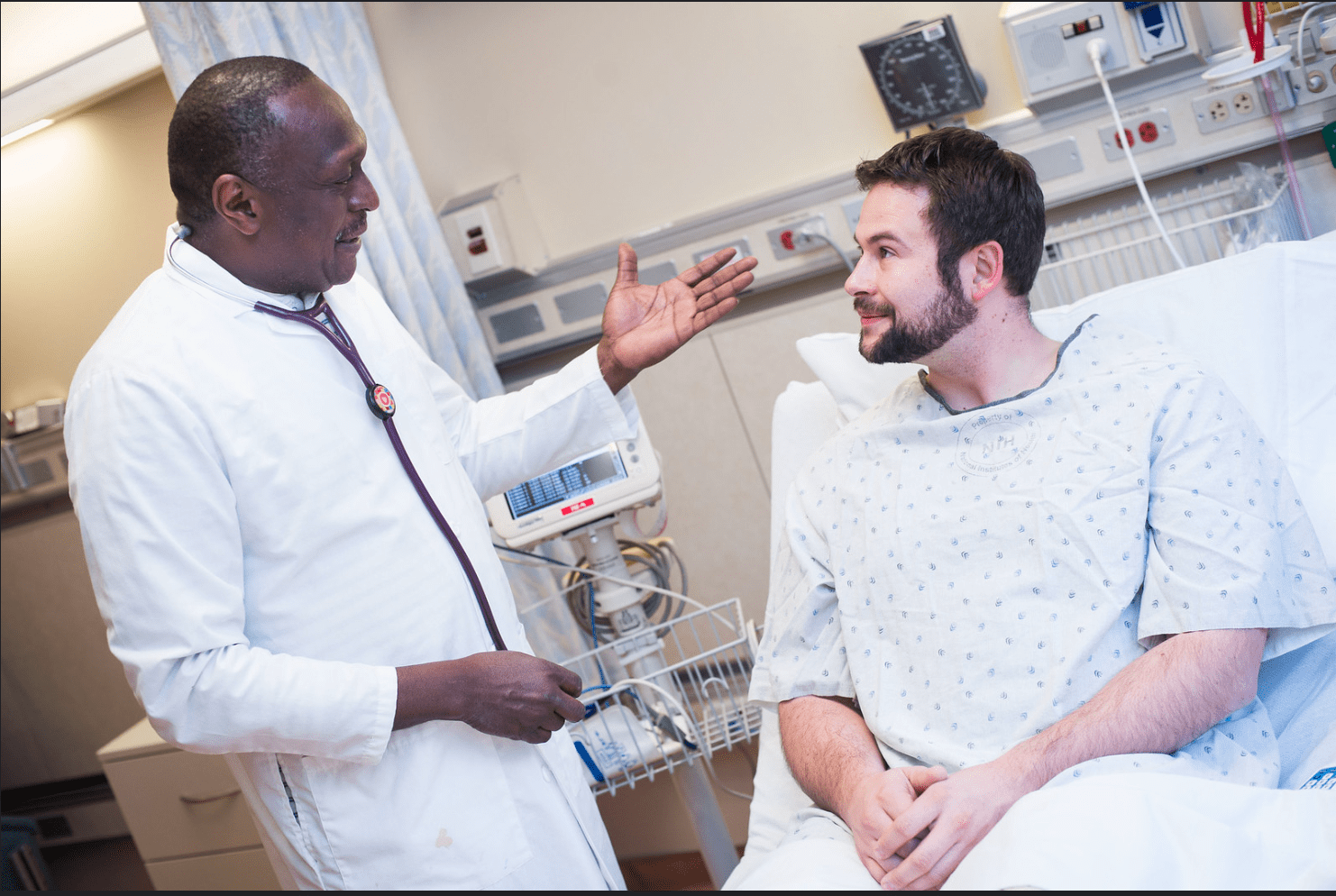Autoscriber unburdens healthcare sector with their speech… Leave a comment


The start-up Autoscriber (based in Eindhoven, the Netherlands) was awarded a pre-seed investment from LUMO Labs last year for their AI-enabled speech recognition software that records and summarizes conversations between healthcare professionals and their patients. This software should take the burden off healthcare professionals by offering them additional support. In this instalment of start-up of the day, we speak to co-founder acqueline Kazmaier about what this investment has meant for them.
What were some of the biggest changes for you after LUMO Labs invested in your company?
“I think we should consider ourselves really lucky with the partner that we’ve managed to find in LUMO Labs. They are really invaluable to our start-up. They’ve brought us a new network with tons of experts. Before we procured the investment, Koen Bonenkamp and I were doing it on our own with the help of two interns. We’ve now grown to seven employees and will soon even have ten. Where initially we only worked together with Leiden UMC, we now have five hospitals that we have a partnership with. Of these, three are large hospitals in the Netherlands. Thanks to LUMO Labs, we have a much wider reach and are fully operational.”
What have the reactions been like from the hospitals you are working with now?
“The long-term impact of Autoscriber can’t be measured yet. This is not something that you can measure from the outset, we can only say what this will be in a few years. It is a new technology and the implementation of new innovations and technologies in the medical sector always takes more time. What I can say is that the first reactions have been very favorable. The system picks up more things than what a healthcare professional would normally have written down themselves. The nice thing about Autoscriber, compared to similar types of software, is that a summary is made using both the voice of the healthcare professional and the patient. This means that extra information is noted down that the healthcare professional may not have heard. That nuance and detail really makes it easier for them to do their job.”
Healthplus.ai’s mission to reduce the impact of post-surgery infections gets support from LUMO Labs – Innovation Origins
LUMO Labs is investing in Healthplus.ai’s innovative AI-driven health-tech proposition to reduce the impact of post-operative infections.
How accurate is Autoscriber?
“I don’t have an exact dataset of how accurate Autoscriber is. It works on the basis of AI, so the more data that is generated, the more accurate the system becomes. For the stage we’re at now with our company, it’s accurate enough for healthcare professionals to be able to work more efficiently. We don’t just work with a transcript. The system understands the conversation of the healthcare professional with the patient, and because of this, it can also help in the future with suggesting a diagnosis based on the patient’s symptoms or medical history.”
Why did you add that diagnostic suggestion feature?
“It helps healthcare professionals to treat a patient properly more quickly. Doctors know a lot, of course, but not everything. They see so many patients, it’s impossible to write everything down and remember it all. Our system can remember everything and make connections at lightning speed. Since it also makes connections with issues covered in earlier conversations, a patient can be helped better.”
“Another advantage of this is that it can also be used to register the detection of epidemics more quickly. If healthcare professionals use this worldwide, they can see that certain symptoms are being signaled more frequently in other places as well. This enables them to intervene sooner in order to stay ahead of a disease. Last but not least, there are some diseases that only crop up in certain regions. If someone in America has contracted something that doesn’t often occur in the Netherlands, the patient will still be able to get the right diagnosis thanks to the system’s knowledge. That’s why we also want to eventually establish ourselves in developing regions where resources are minimal, so that doctors there can give their patients the kind of help they need. We aim to help and support doctors with what they do best: help patients.”
Have you had any setbacks over the past year?
“I think healthcare is full of challenges because you are handling sensitive patient data. You have got to be so careful with that data. We spend a lot of time on data security in comparison to other start-ups. It has to be incredibly secure. As such, it’s not really a setback, but it is something that takes a lot of time.”
What are your plans for the future?
“We hope to be able to expand into German hospitals within the year. Ultimately, we want to establish ourselves outside of Europe as well. As I said before, this includes a system for developing countries. We are planning to start with Africa. Many people can’t even go to a GP if there is something wrong, or they have absolutely no access to any kind of healthcare. It would be nice if by establishing ourselves in richer countries, we could give back to communities that don’t have the funding for it.”



